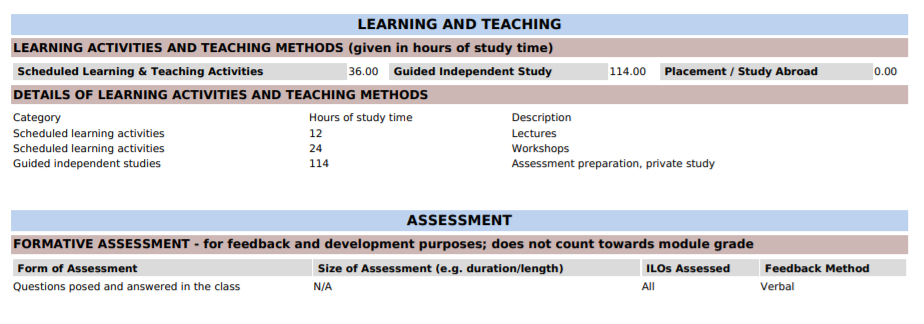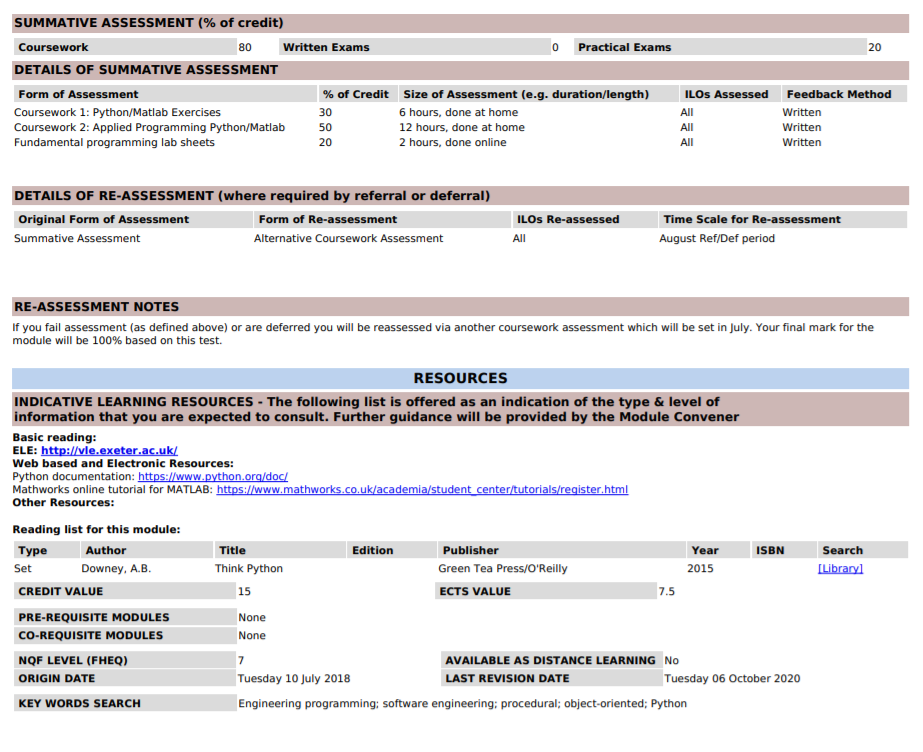MODULE TITLE Programming for Engineering CREDIT VALUE 15
英国编程作业代写 This module will introduce you to basic software development and programming principles to solve engineering and computational
DESCRIPTION - summary of the module content 英国编程作业代写
This course will focus on developing an understanding of basic issues related to programming for engineering applications. You will be introduced to the basic concepts and principles of computer programming, resulting in the ability to form algorithms to solve problems, write your own code and create your own computer applications. The course will start with an introduction/overview of basic computer programming principles such as defining variables, evaluating conditions and evaluating functions. This will be followed by the description of principles in procedural software programming. Students enrolled on ECMM171 will explore this using the Python programming language, and students on ECMM171P will use the Matlab programming language, in order to align with prerequisites of other courses in the respective programmes. You will also be exposed to real world applications of computation within engineering.
AIMS - intentions of the module
This module will introduce you to basic software development and programming principles to solve engineering and computational problems using either Matlab or Python. The module content is customised for beginners with specific applications in engineering. INTENDED LEARNING OUTCOMES (ILOs) (see assessment section below for how ILOs will be assessed) This is a constituent module of one or more degree programmes which are accredited by a professional engineering institution under licence from the Engineering Council. The learning outcomes for this module have been mapped to the output standards required for an accredited programme, as listed in the current version of the Engineering Council’s ‘Accreditation of Higher Education Programmes’ document (AHEP-V3). This module contributes to learning outcomes: SM5m, EA3m, EA1fl, EA4m, G1m, G1fl A full list of the referenced outcomes is provided online:
https://intranet.exeter.ac.uk/emps/studentinfo/subjects/engineering/accreditation/
The AHEP document can be viewed in full on the Engineering Council’s website, at http://www.engc.org.uk/
On successful completion of this module, you should be able to: Module Specific Skills and Knowledge:
- Understand the algorithmic and code development process;
- Learn how to write your own software code in Python or Matlab;
- Use the code you have written to solve real-life problems, both in engineering and elsewhere in computing. Discipline Specific Skills and Knowledge:
- Identify the key processes relevant to solving computational engineering problems.
Personal and Key Transferable / Employment Skills and Knowledge: - Show enhanced independent learning.
SYLLABUS PLAN - summary of the structure and academic content of the module 英国编程作业代写
This course will be run in two different tracks, using either Python or Matlab, depending if you are on the undergraduate or taught postgraduate programme:
• If you are on the undergraduate programme (i.e. MEng and registered on the module ECMM171), you will be in the Python cohort;
• If you are on the taught postgraduate programme (i.e. MSc, Pg-Dip or Pg-Cert and registered on the module ECMM171P), you will be in the Matlab cohort.
The two different cohorts will have different timetables and slightly different course materials, owing to the requirements for Python and Matlab. Different languages are used because most undergraduates have already seen Matlab in previous years and are therefore more likely to benefit from a broader investigation of programming languages. Since some masters’ level modules utilise Matlab and PGT students typically have a more varied background, they benefit more from a Matlab course. However, content and assessments between the two languages are broadly extremely similar. Each section below outlines the module materials for each cohort. Note that this is intended to give an overview of general overview of the topics being covered, and may be subject to change.
Topics covered by the Python cohort
• Introduction to programming: variables and flow control, lists and loops, functions and modules.
• Exceptions and I/O.
• Numerical Python with NumPy and visualisation of data with matplotlib.
• Testing and good practice.
• Numerical methods: integration and optimization.
Topics covered by the Matlab cohort 英国编程作业代写
• Introduction to Matlab: Program flow control, Loops and functions.
• Linear algebra and curve fitting, Roots and function handles.
• Advanced data structures and file I/O.
• Numerical calculus and ODE solving, symbolic toolbox and optimization.
• Visualisations and figure handles.
• Introduction to Simulink.



更多代写: HomeWork cs作业 金融代考 postgreSQL代写 IT assignment代写 统计代写 论文代写机构服务




发表回复
要发表评论,您必须先登录。